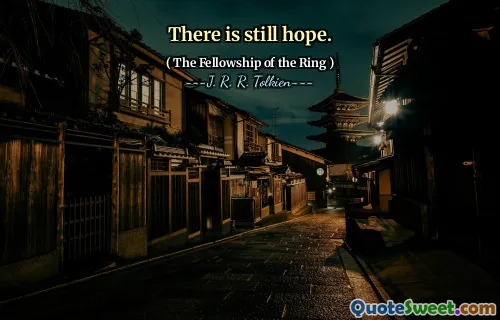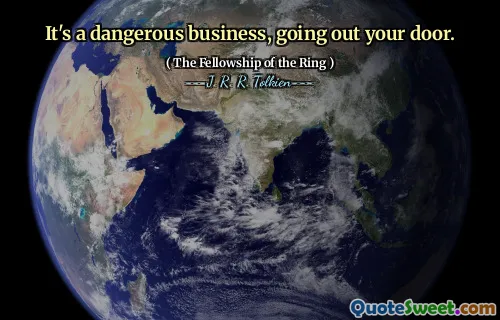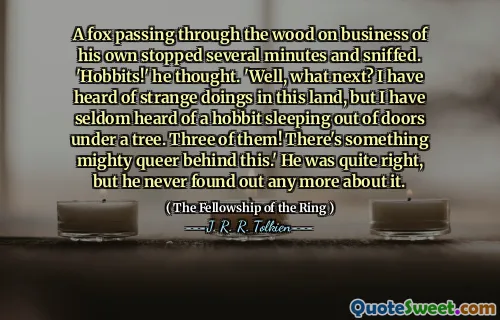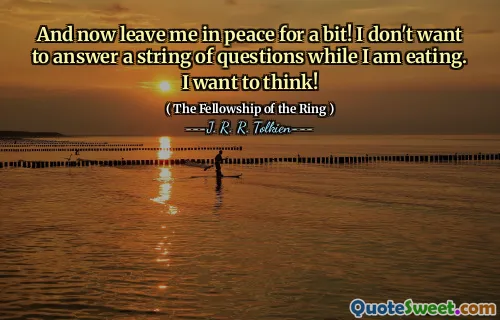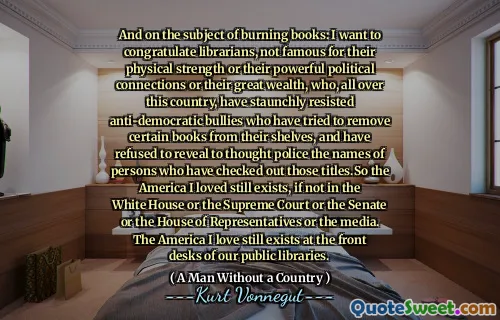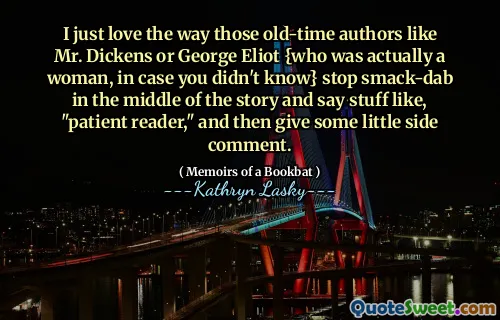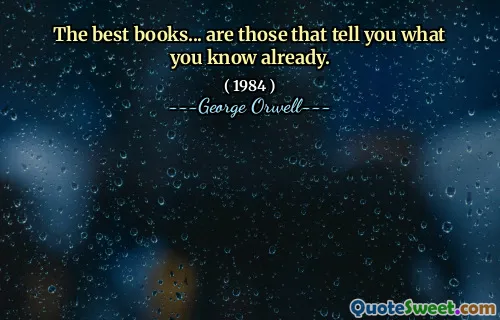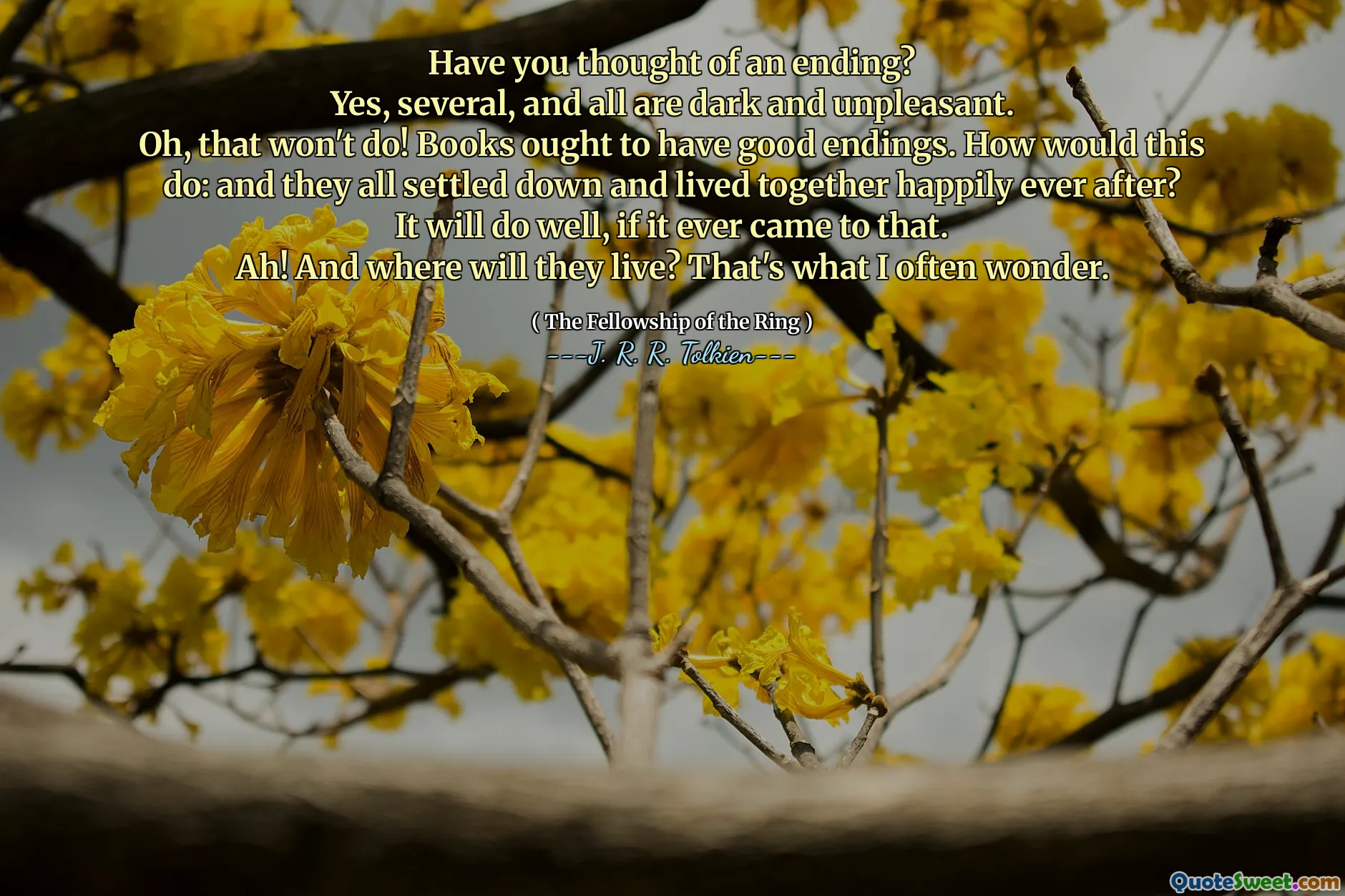
Have you thought of an ending? Yes, several, and all are dark and unpleasant. Oh, that won't do! Books ought to have good endings. How would this do: and they all settled down and lived together happily ever after? It will do well, if it ever came to that. Ah! And where will they live? That's what I often wonder.
This dialogue delves into a common narrative and philosophical concern about the endings of stories and, by extension, life itself. The characters express a desire for happy endings, reflecting a universal preference for closure that offers comfort, hope, and reassurance. The notion that stories should conclude on a positive note stems from a deep-seated longing for harmony and resolution, especially in tumultuous or uncertain times. Sometimes, the darker endings, though authentic, leave us unsettled, highlighting the tension between reality and idealism.
In literature, authors often grapple with balancing realism and optimism, knowing that a purely bleak or tragic conclusion can be profound but may not satisfy the reader's yearning for closure. The conversation hints at the human condition—the persistent wonder about the future, about where life might lead, and the universal curiosity about what lies ahead. The question about where

